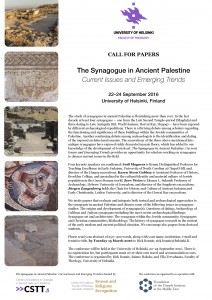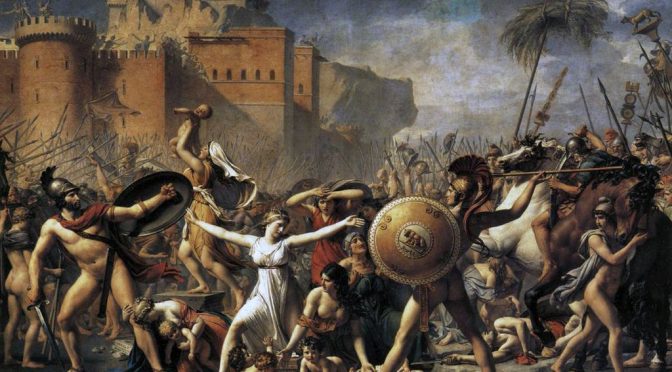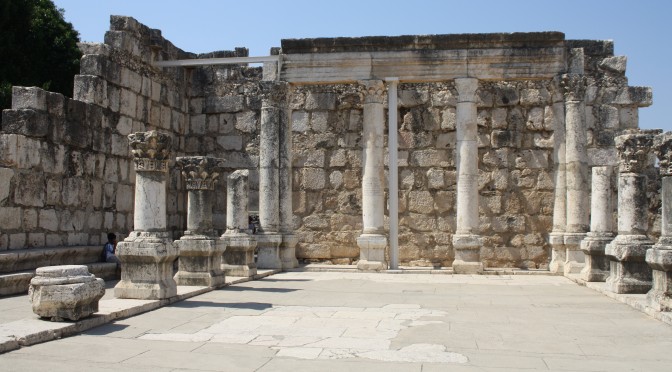CALL FOR PAPERS
The Synagogue in Ancient Palestine: Current Issues and Emerging Trends
22–24 September 2016, University of Helsinki
*Feel free to forward this message to anyone who might be interested*
 The study of synagogues in ancient Palestine is flourishing more than ever. In the last decade at least four synagogues — one from the Late Second Temple-period (Magdala) and three dating to Late Antiquity (Kh. Wadi Hamam, Horvat Kur, Huqoq) — have been exposed by different archaeological expeditions. There is a thriving debate among scholars regarding the functioning and significance of these buildings within the Jewish communities of Palestine. Another continuing debate among archaeologists is the identification and dating of the exposed architectural remains. The excavations of the three above-mentioned late-antique synagogues have exposed richly decorated mosaic floors, which has added to our knowledge of the development of Jewish art. The Synagogue in Ancient Palestine. Current Issues and Emerging Trends provides an opportunity for scholars working on synagogues to discuss current issues in the field.
The study of synagogues in ancient Palestine is flourishing more than ever. In the last decade at least four synagogues — one from the Late Second Temple-period (Magdala) and three dating to Late Antiquity (Kh. Wadi Hamam, Horvat Kur, Huqoq) — have been exposed by different archaeological expeditions. There is a thriving debate among scholars regarding the functioning and significance of these buildings within the Jewish communities of Palestine. Another continuing debate among archaeologists is the identification and dating of the exposed architectural remains. The excavations of the three above-mentioned late-antique synagogues have exposed richly decorated mosaic floors, which has added to our knowledge of the development of Jewish art. The Synagogue in Ancient Palestine. Current Issues and Emerging Trends provides an opportunity for scholars working on synagogues to discuss current issues in the field.
Four keynote speakers are confirmed: Jodi Magness is Kenan Distinguished Professor for Teaching Excellence in Early Judaism, University of North Carolina at Chapel Hill, and director of the Huqoq excavations. Karen Stern Gabbay is Assistant Professor of History, Brooklyn College, and specialized in the cultural identity and material culture of Jewish population in the Greco-Roman world. Zeev Weiss is Eleazar L. Sukenik Professor of Archaeology, Hebrew University of Jerusalem, and director of the Sepphoris excavations. Jürgen Zangenberg holds the Chair for History and Culture of Ancient Judaism and Early Christianity, Leiden University, and is director of the Horvat Kur excavations.
We invite papers that evaluate and integrate both textual and archaeological approaches to the synagogue in ancient Palestine and discuss some of the following issues in synagogue studies: The origins and development of synagogue(s); Questions of dating; Archaeology of Galilean and Judean synagogues including the most recent archaeological findings; Synagogue art and architecture; The synagogue within the Jewish community; Synagogues and Christian communities; Methodology; The history of synagogue research in the context of the early modern and current political situation. We encourage also papers from doctoral students.
Please send your abstract of 250–400 words, along with your name, institution, e-mail and tentative title, by Tuesday 15 March 2016 to Rick Bonnie, rick.bonnie@helsinki.fi.
The conference will be held at the University of Helsinki, 22–24 September 2016. There is no registration fee, but participants must cover their own travel and accommodation costs. The conference is organized by Rick Bonnie, Raimo Hakola, and Ulla Tervahauta, Faculty of Theology, University of Helsinki.
The conference is funded by the Centre of Excellence in Changes in Sacred Texts and Traditions and the Centre of Excellence in Reason and Religious Recognition, both Faculty of Theology, University of Helsinki. The conference is organized in co-operation with the Foundation of the Finnish Institute in the Middle East.



